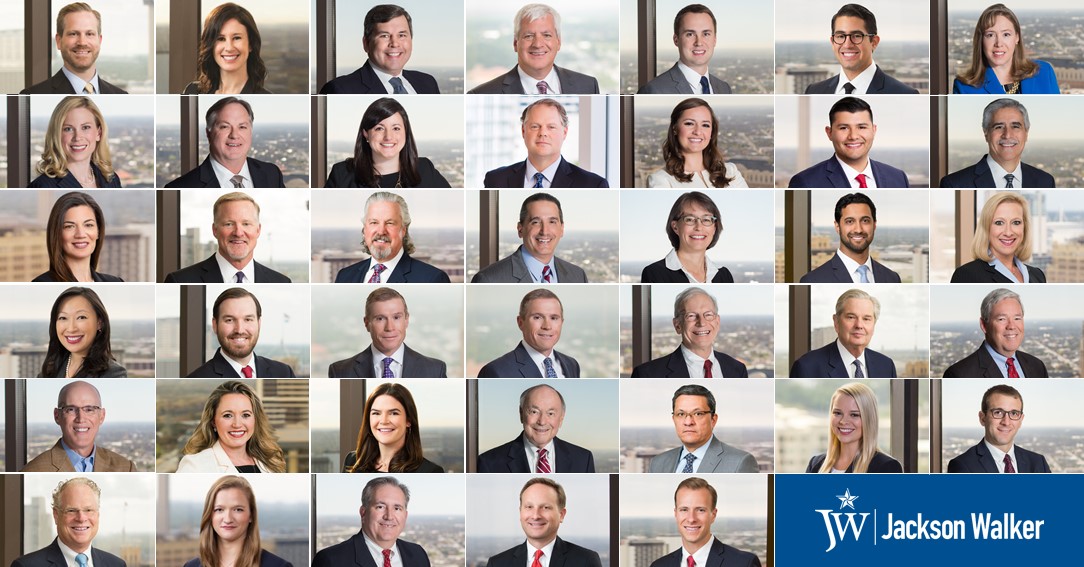
Mark H. Miller
Practice Areas
Experience
- Copyrights
- Franchising
- Intellectual Property Audits
- Intellectual Property Litigation
- International
- Latin America Inbound – Spanish
- Latin America Outbound – English
- Patent Prosecution
- Technology
- Trademarks
Biography
For more than 40 years, Mark Miller has fielded and defended dozens of intellectual property and franchise suits, primarily in federal district court, but also in state district court and before the Trademark Trial and Appeal Board for all types of industries including oil and gas, healthcare, information technology, resort industry, automotive, restaurants, and retail.
Mark helps U.S. businesses obtain trademark registrations and protect their trademark rights in foreign countries including Canada, Mexico, European Economic Community, Latin America, Asia, Africa and elsewhere. He has negotiated dozens of agreements for development licensing, assignment, purchase or sale of intellectual property in numerous industries, including software, restaurant, oil, and manufacturing.
Mark has obtained patents in the United States Patent and Trademark Office since 1978. He is intellectual property counsel for oil and gas companies, a medical device company, an international clothing company with operations in many countries, and other businesses in various lines of commerce.
Since 1980, he has represented franchisors and franchisees in creating franchise systems, Franchise Disclosure Documents, franchise agreements, obtaining state franchise registrations, buying and selling franchises for both franchisors and franchisees, and litigating for both franchisors and franchisees.
Education
B.A., Austin College
J.D., St. Mary’s University School of Law
Bar Admissions
Texas
Court Admissions
United States Supreme Court
United States Court of Appeals for the Federal, Fifth, and Tenth Circuits
United States Patent and Trademark Office
Supreme Court of the State of Texas
United States District Court for the Northern, Southern, and Western District of Texas
Mark Miller focuses his practice on counseling, transactions, and litigation concerning intellectual property (patents, trademarks, copyrights and trade secrets), franchise, license and antitrust matters.
- Represented a group of hair salon franchisees against their franchisor and launched them as an independent group with a new trademark.
- Prosecuted hundreds of trademark applications in the United States Patent and Trademark Office for all types of industries.
- Represented registrants and applicants in more than 30 Opposition and Cancellation proceedings before the Trademark Trial and Appeal Board of the United States Patent and Trademark Office.
- Represented an international automotive products company in enforcement of its product design and software copyright rights against a competitor.
- Defended against a patent ownership/inventorship/damages suit. In 2014, all of Plaintiffs’ claims were dismissed and damages were recovered from Plaintiffs.
Applying his expansive experience in intellectual property law, Mark serves as a trusted voice on franchise, trademark, copyright, and patent law issues. View Mark’s articles and papers.
- “Top Attorneys” List, Intellectual Property Rights, San Antonio Magazine, 2019
- “Best S.A. Lawyers” List, San Antonio Scene, 2017-2023
- Intellectual Property Law
- Intellectual Property Litigation
- 2016 Outstanding Lawyer Award, San Antonio Business Journal (SABJ)
- Fellow of the Texas Bar Foundation, 2016
Applying his expansive experience in intellectual property law, Mark Miller serves as a trusted voice on franchise, trademark, copyright, and patent law issues. Among the articles and papers to his credit are:
- “Intellectual Property Basics“: An entry level discussion of intellectual property and sets out IP action steps.
- “Copyright Infringement“: This paper addresses practical aspects of a typical copyright infringement case, a deceptively simple subject. Plaintiff introduces its copyright registration into evidence, and proves defendant copied too much of the registered work and monetary relief numbers. Fullstop. In practice, however, a copyright case is like a jigsaw puzzle, the omission of any piece being fatal.
- “How To Represent Prospective Franchisees and Franchisors“: Franchising is a method of distribution that combines the advantages of a central specialized system with the capital and micro-management of local independent business persons to produce a market competitor with critical mass. Its inherent geographic expansiveness and long term business relationships cause franchising to be affected by an array of dynamic federal, state and local laws. The application of this collection of laws to franchise relationships is referred to as franchise law.
- “The Top 10 Things You Wanted to Know About False Patent Marking but Were Afraid to Ask“: In the months since the Federal Circuit’s decision in The Forest Group, Inc. v. Bon Tool Co., more than 100 patent false marking lawsuits have been filed. This article presents the top 10 questions to identify your company’s false marking risks and limit exposure.
- “Neglected Copyright Litigation Issues“: There is not enough time to resolve today’s new emergencies and yesterday’s leftover emergencies and the ones hanging on from last week . . . and also stay ahead of the weeds in each of the IP lawyer’s clients’ copyright gardens. A hypothetical IP lawyer with the time to run down every last thread to its end has one client and no cost restraints. This paper discusses neglected copyright litigation issues which bedevil all of us.
- “Valuable Intellectual Property“: Action Steps: 1. Trademarks: Be first and get federal registrations; 2. Copyrights: Assignments and registrations; 3. Patents: Assignments and call patent attorney; 4. Trade Secrets: Security program (includes agreement)
- “Unintentional Franchising“: The focus is on honest businesses that do not realize they may be legally regulated as “franchisors” or “business opportunity sellers” and subject to potentially awful consequences due to noncompliance. This article first discusses federal and other states’ laws, then the Texas Business Opportunity Act (BOA), and finally, practical and litigation consequences.
- “The Madrid Protocol: Providing International Trademark Registration“: The United States began effective participation in the Madrid Protocol (MP) on November 2, 2003, which marks what could be considered the most significant development in U.S. trademark law in more than a decade.
- “You did what? Potential Pitfalls for the Franchisor“: The purpose of this paper is to help the competent business attorney who does not yet have franchising experience anticipate and deal with potential pitfalls faced by small franchisors. The structure of the paper is to first deal with the practical aspects of handling a small franchisor’s crisis as its attorney and counselor within the bounds of ethical representation.
- “The General Practitioner’s Guide to Franchising“: Franchising is a method of distribution that combines the advantages of a central specialized system with the capital and micromanagement of local independent business persons to produce a market competitor with critical mass. Its inherent geographic expansiveness and long term business relationships cause franchising to be affected by an array of dynamic federal, state and local laws. The application of this collection of laws to franchise relationships is referred to as franchise law.
- “Arithmetic 101 for Prospective Franchisees“: The Capitalism Game: Grocery Store Example and Franchise Example; The Franchise Game: General Observations, The Goal of the Franchise Game, The – Royalty * Revenue & Expense * Profit – Relationship, and Franchised Business = A Leased Business; A Franchise Is Not Entirely “Your” Business.
- “Patents, Trade Secrets and the Success of a Small Chemical Business“: 1. The best patent applications are filed while the invention is still in its conceptual stage. Although time should be taken to think out the broad conceptual scope of the idea, after that, for most patent applications, the sooner they are filed the better. If necessary, such prophetic patent applications can be expanded through subsequent continuation-in-part applications, etc.; 2. It is not a protectable trade secret unless it is a secret.
- “Corporate IP Audits“: The difference between a corporation’s book value and its market value is its intangible assets. This includes its team of employees, client relationships, way of getting things done, momentum, etc. Successful companies to get the most out of both their tangible assets and intangible assets. Unfortunately, while most managers know the value of their building and equipment, who it owns, whether it is insured, etc., they do not have similar knowledge of the corporation’s intangible assets. It is impossible for management to intelligently decide what to do with its important intangible assets without knowing what they are and what can be done with them.
- Presenter, “Intellectual Property for First Year Law Students,” St. Mary’s Law School
- Arithmetic 101 For Prospective Franchisees
- “Best Ways To Protect Your Business,” Creating Richer Lives Podcast
- American Bar Association, Forum Committee – Franchising
- American Bar Association
- Intellectual Property Section
- Antitrust Section
- State Bar of Texas
- Intellectual Property Litigation Section
- Antitrust Section
- San Antonio Bar Association

September 18, 2023
Attorney News
‘Scene in S.A.’ Recognizes Jackson Walker Attorneys in 2023 “Best S.A. Lawyers” List
Jackson Walker congratulates the 44 practicing attorneys in the San Antonio office who were included in Scene in S.A.’s 2023 “Best S.A. Lawyers” list. In its 19th year, the “Best S.A. Lawyers” list presents attorneys across 80 distinct practice areas who were nominated by fellow licensed, practicing attorneys of Bexar County.

August 24, 2023
Newsletters
JW Diversity & Inclusion Newsletter – August 2023
View Jackson Walker’s August 2023 Diversity & Inclusion Newsletter, Perspectives.

April 19, 2023
Speaking Engagements
St. Mary’s Law Invites Mark Miller to Present “Intellectual Property Basics”
Mark Miller visited St. Mary’s University School of Law on April 5, 2023, to present on intellectual property to first-year law school students.

September 6, 2022
Attorney News
‘Scene in S.A.’ Recognizes Jackson Walker Attorneys in 2022 “Best S.A. Lawyers” List
Jackson Walker congratulates the 42 practicing attorneys in the San Antonio office who were included in Scene in S.A.’s 2022 “Best S.A. Lawyers” list.



July 14, 2021
Attorney News
‘Scene in S.A.’ Recognizes 38 Jackson Walker Attorneys in 2021 “Best S.A. Lawyers” List
In its 17th year, the “Best S.A. Lawyers” list presents attorneys across 80 distinct practice areas who were nominated by fellow licensed, practicing attorneys of Bexar County. The survey takes the voters for each attorney into account, including where the voter works, their practice area, and how many years they have practiced.
April 30, 2021
Mentions
Best Ways to Protect Your Business | Creating Richer Lives
With over 40 years of experience, Mark Miller is a wealth of knowledge when it comes to copyrights, trademarks, and patents.


July 30, 2020
Attorney News
‘Scene in S.A.’ Recognizes 40 Jackson Walker Attorneys in 2020 “Best S.A. Lawyers” and “Rising Star Lawyers” Lists
In its 16th year, the “Best S.A. Lawyers” list presents attorneys across 80 distinct practice areas who were nominated by fellow licensed, practicing attorneys of Bexar County.
June 24, 2019
Attorney News
‘San Antonio Scene’ Recognizes 39 Jackson Walker Attorneys in 2019 “Best Lawyers” List
In its 15th year, S.A. Scene‘s “Best S.A. Lawyers” list presents attorneys across 80 distinct practice areas who were nominated by fellow licensed, practicing attorneys of Bexar County.
July 23, 2018
Attorney News
‘San Antonio Scene’ Recognizes All San Antonio Attorneys in “Best Lawyers” List
Jackson Walker congratulates the 37 attorneys who were recognized in San Antonio Scene’s “Best S.A. Lawyers” and “Rising Star Lawyers” lists for 2018.
Mark has more than 30 years’ experience in doing deals concerning technology, distribution, and sales. These include licenses, sales, franchises, acquisitions and the like in lines of commerce ranging from software, restaurants, patents, trademarks, research and development, distribution, manufacturing and retail.
Practice Experience
Mark Miller focuses his practice on counseling, transactions, and litigation concerning intellectual property (patents, trademarks, copyrights and trade secrets), franchise, license and antitrust matters.
- Represented a group of hair salon franchisees against their franchisor and launched them as an independent group with a new trademark.
- Prosecuted hundreds of trademark applications in the United States Patent and Trademark Office for all types of industries.
- Represented registrants and applicants in more than 30 Opposition and Cancellation proceedings before the Trademark Trial and Appeal Board of the United States Patent and Trademark Office.
- Represented an international automotive products company in enforcement of its product design and software copyright rights against a competitor.
- Defended against a patent ownership/inventorship/damages suit. In 2014, all of Plaintiffs’ claims were dismissed and damages were recovered from Plaintiffs.
Applying his expansive experience in intellectual property law, Mark serves as a trusted voice on franchise, trademark, copyright, and patent law issues. View Mark’s articles and papers.
Recognition & Accolades
- “Top Attorneys” List, Intellectual Property Rights, San Antonio Magazine, 2019
- “Best S.A. Lawyers” List, San Antonio Scene, 2017-2023
- Intellectual Property Law
- Intellectual Property Litigation
- 2016 Outstanding Lawyer Award, San Antonio Business Journal (SABJ)
- Fellow of the Texas Bar Foundation, 2016
Publications & Speeches
Applying his expansive experience in intellectual property law, Mark Miller serves as a trusted voice on franchise, trademark, copyright, and patent law issues. Among the articles and papers to his credit are:
- “Intellectual Property Basics“: An entry level discussion of intellectual property and sets out IP action steps.
- “Copyright Infringement“: This paper addresses practical aspects of a typical copyright infringement case, a deceptively simple subject. Plaintiff introduces its copyright registration into evidence, and proves defendant copied too much of the registered work and monetary relief numbers. Fullstop. In practice, however, a copyright case is like a jigsaw puzzle, the omission of any piece being fatal.
- “How To Represent Prospective Franchisees and Franchisors“: Franchising is a method of distribution that combines the advantages of a central specialized system with the capital and micro-management of local independent business persons to produce a market competitor with critical mass. Its inherent geographic expansiveness and long term business relationships cause franchising to be affected by an array of dynamic federal, state and local laws. The application of this collection of laws to franchise relationships is referred to as franchise law.
- “The Top 10 Things You Wanted to Know About False Patent Marking but Were Afraid to Ask“: In the months since the Federal Circuit’s decision in The Forest Group, Inc. v. Bon Tool Co., more than 100 patent false marking lawsuits have been filed. This article presents the top 10 questions to identify your company’s false marking risks and limit exposure.
- “Neglected Copyright Litigation Issues“: There is not enough time to resolve today’s new emergencies and yesterday’s leftover emergencies and the ones hanging on from last week . . . and also stay ahead of the weeds in each of the IP lawyer’s clients’ copyright gardens. A hypothetical IP lawyer with the time to run down every last thread to its end has one client and no cost restraints. This paper discusses neglected copyright litigation issues which bedevil all of us.
- “Valuable Intellectual Property“: Action Steps: 1. Trademarks: Be first and get federal registrations; 2. Copyrights: Assignments and registrations; 3. Patents: Assignments and call patent attorney; 4. Trade Secrets: Security program (includes agreement)
- “Unintentional Franchising“: The focus is on honest businesses that do not realize they may be legally regulated as “franchisors” or “business opportunity sellers” and subject to potentially awful consequences due to noncompliance. This article first discusses federal and other states’ laws, then the Texas Business Opportunity Act (BOA), and finally, practical and litigation consequences.
- “The Madrid Protocol: Providing International Trademark Registration“: The United States began effective participation in the Madrid Protocol (MP) on November 2, 2003, which marks what could be considered the most significant development in U.S. trademark law in more than a decade.
- “You did what? Potential Pitfalls for the Franchisor“: The purpose of this paper is to help the competent business attorney who does not yet have franchising experience anticipate and deal with potential pitfalls faced by small franchisors. The structure of the paper is to first deal with the practical aspects of handling a small franchisor’s crisis as its attorney and counselor within the bounds of ethical representation.
- “The General Practitioner’s Guide to Franchising“: Franchising is a method of distribution that combines the advantages of a central specialized system with the capital and micromanagement of local independent business persons to produce a market competitor with critical mass. Its inherent geographic expansiveness and long term business relationships cause franchising to be affected by an array of dynamic federal, state and local laws. The application of this collection of laws to franchise relationships is referred to as franchise law.
- “Arithmetic 101 for Prospective Franchisees“: The Capitalism Game: Grocery Store Example and Franchise Example; The Franchise Game: General Observations, The Goal of the Franchise Game, The – Royalty * Revenue & Expense * Profit – Relationship, and Franchised Business = A Leased Business; A Franchise Is Not Entirely “Your” Business.
- “Patents, Trade Secrets and the Success of a Small Chemical Business“: 1. The best patent applications are filed while the invention is still in its conceptual stage. Although time should be taken to think out the broad conceptual scope of the idea, after that, for most patent applications, the sooner they are filed the better. If necessary, such prophetic patent applications can be expanded through subsequent continuation-in-part applications, etc.; 2. It is not a protectable trade secret unless it is a secret.
- “Corporate IP Audits“: The difference between a corporation’s book value and its market value is its intangible assets. This includes its team of employees, client relationships, way of getting things done, momentum, etc. Successful companies to get the most out of both their tangible assets and intangible assets. Unfortunately, while most managers know the value of their building and equipment, who it owns, whether it is insured, etc., they do not have similar knowledge of the corporation’s intangible assets. It is impossible for management to intelligently decide what to do with its important intangible assets without knowing what they are and what can be done with them.
- Presenter, “Intellectual Property for First Year Law Students,” St. Mary’s Law School
- Arithmetic 101 For Prospective Franchisees
- “Best Ways To Protect Your Business,” Creating Richer Lives Podcast
Community Involvement
- American Bar Association, Forum Committee – Franchising
- American Bar Association
- Intellectual Property Section
- Antitrust Section
- State Bar of Texas
- Intellectual Property Litigation Section
- Antitrust Section
- San Antonio Bar Association
Areas of Focus
Mark has more than 30 years’ experience in doing deals concerning technology, distribution, and sales. These include licenses, sales, franchises, acquisitions and the like in lines of commerce ranging from software, restaurants, patents, trademarks, research and development, distribution, manufacturing and retail.
